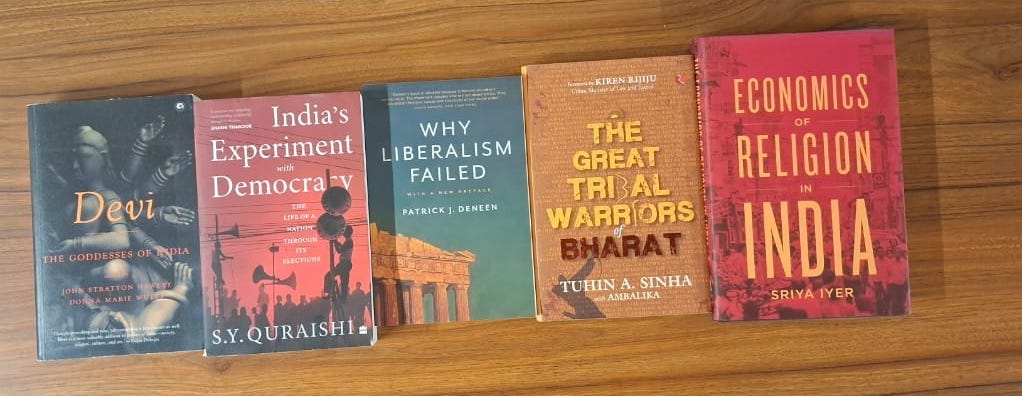Tolkien, Lewis…and You?
“There were no rules, officers, agendas, or formal elections.” Such was how The Inklings were described, an informal literary circle that was around from the early 1930s to the late 1940s among a few academics at the University of Oxford.
But why does this convening hold renown decades later? Likely due to two of their most famous members: C.S. Lewis and J.R.R. Tolkien.

The group held weekly discussions every Thursday evening in Lewis’ rooms at Magdalen College and their intended purpose was for members to read from their own written works-in-progress and then receive feedback from fellow creatives in the circle.
Many of the now famous works of group members were read aloud at meetings: Tolkien reportedly read excerpts of ‘The Lord of the Rings’ and Lewis read excerpts of his ‘Chronicles of Narnia’, both to their fellow community members.
Tolkien and Lewis however were not just academic peers and Inkling members at Oxford, but had a “deep intellectual friendship” for nearly two decades, lending some credence to the famed Lewis quote:
“Nothing, I suspect, is more astonishing in any man’s life than the discovery that there do exist people very, very like himself.”
As one New York Times writer noted of their bond:
“Separately Lewis and Tolkien were men of great intellect and feeling — but only together did they become geniuses.”
Much like The Inklings, you too, dear reader, have the opportunity to join a community to explore shared academic pursuits, and possibly build intellectual friendships with a proverbial Lewis or Tolkien-like peer.
And the Takshashila Indo-Pacific Studies Programme is here with a timely offer in just that vein, with their newly launched five-week online expert capsule course, ‘Watching China: Open Source Analysis of Chinese Politics & Policymaking’.
Over the duration of the course, you’ll get to learn (almost) everything on China’s domestic and foreign policies from their party-state structure, power dynamics and ideology to elite politics and the People’s Liberation Army.
Applications for the course close by January 22, 2025, 11:59 PM IST, so apply at this link and join the potential fellowship today.
Announcing: The Great Power Show!
Just when you thought Takshashila Chairperson of the Indo-Pacific Studies Research Programme, Manoj Kewalramani, had reserved his most meaningful insights for his newsletter, Tracking People’s Daily (which provides an analysis of the Communist Party’s flagship newspaper, every weekday), he goes ahead and releases a bi-weekly podcast: The Great Power Show.
On his new podcast Manoj explores the big shifts in technology, politics and institutions and the implications of an evolving world order for all of us. Join him, dear listener, for candid conversations and thought-provoking interviews with leading scholars, thinkers and practitioners.
Go ahead and follow this link to listen to his inaugural episode with Shivshankar Menon, former Indian National Security Advisor as they unpack together the ‘Myth of World Order’, where Menon “challenges the conventional wisdom that order-building is a hallmark of great powers.”
What’s the Hue and Cry for Satellite-Based Internet Technologies?
In their latest Op-Ed in Outlook Business, our High-Tech Geopolitics and Indo-Pacific Studies Research Analysts, Ashwin Prasad, and Rakshith Shetty respectively, have views to share on satellite-based internet technologies.
Combining their subject matter expertise, they jointly argue for why India’s lack of satellite internet infrastructure jeopardises the nation strategically:
This lack of satellite internet infrastructure puts India at a significant disadvantage, particularly in remote regions like Ladakh, Arunachal Pradesh and the Andaman Islands—areas critical for border security—which continue to suffer from poor connectivity. A delayed regulatory process or lack thereof not only denies these technologies to legitimate users but may also enable their misuse.
They continue:
India's approach to satellite internet needs to be both immediate and long-term. In the short term, India should streamline regulatory clearances along with the necessary safeguards for trusted satellite internet providers, both domestic and international. These measures would protect national interests while enabling rapid deployment of satellite internet services.
Click here to read more of their thoughtfully developed insights on this salient issue.
Regional Connectivity in India…
This week’s All Things Policy episode is a discussion between Indo-Pacific Studies Research Analyst, Vanshika Saraf, and Riya Sinha (CSEP), where they discuss the Sambandh Database that visualises data related to India's infrastructure connectivity with neighbouring countries, including Bangladesh, Bhutan, China, Maldives, Myanmar, Nepal, Sri Lanka, and Pakistan.
To listen into their discussion on the impetus for the creation of the database, challenges faced along the way and potential for the tool, listen here.
Hydropower Developments: Yarlung Tsangpo Edition
In December, reports emerged that China approved the construction of the world’s largest hydropower project on the Yarlung Tsangpo (or Zangbo) river in Tibet.
But fear not, dear reader, we’re here to demystify this development for you. Takshashila Head of Geospatial Research Programme, Dr. Y. Nithiyanandam, parses out some of the considerations about this notable development, in a conversation with The Indian Express, where he notes:
Recent developments including the allocation of funds, development of smaller dams along the river channel, and changes in land use in upstream areas, indicate the project is in an advanced planning stage, and visible construction progress is likely to follow soon.
To learn more about the rationale behind the construction and its location, follow this link.
Takshashila Tabletop Trove!
Welcome (back) to the Tabletop Trove of Dispatch! As you may well know, this section is intended to be a virtual repository of the books that sit at a high-table located in Takshashila’s physical office space in Bengaluru, Karnataka (and took a brief respite over the holiday season).
This week’s theme is ‘Theory & Practice of Identity’ as curated by our Indo-Pacific Studies Staff Research Analyst, Anushka Saxena:
Devi: The Goddesses of India (John Stratton Hawley, Donna Marie Wulff)
India's Experiment with Democracy (S.Y. Quaraishi)
Why Liberalism Failed (Patrick J. Deneen)
The Great Tribal Warriors of Bharat (Tuhin A. Sinha)
Economics of Religion in India (Sriya Iyer)
This edition of the Dispatch was written by Kripa Koshy, Programme Manager for Takshashila’s Post Graduate Programme in Public Policy.




